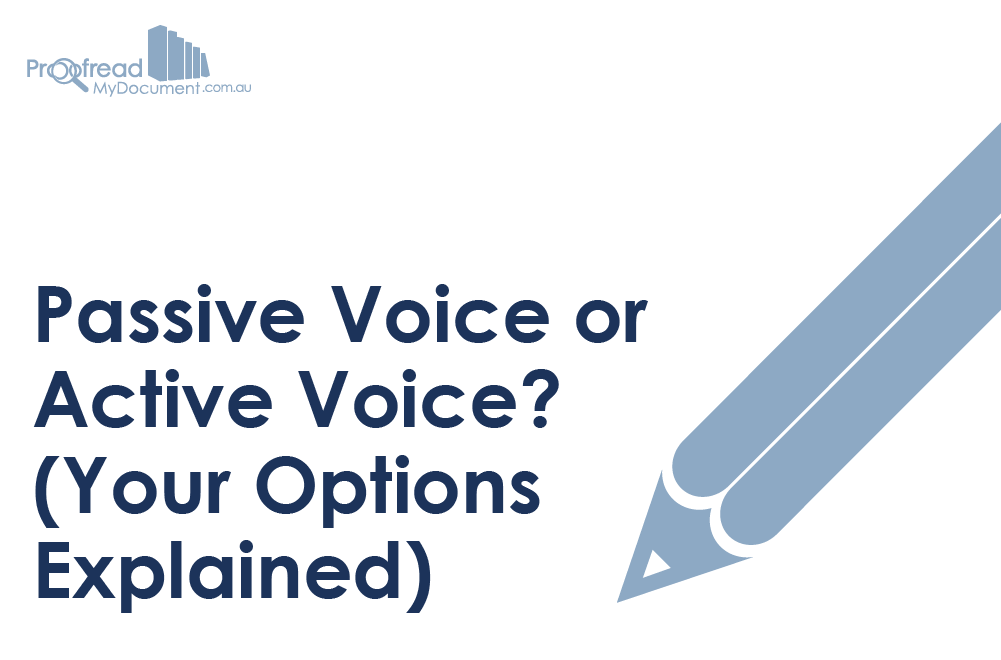As far as grammar goes, the passive voice is controversial. Some say it is essential to academic writing and helps writers to maintain an objective tone. Others claim the active voice is clearer and more succinct.
In truth, the best approach depends on the situation. But this means you need to know what these ‘voices’ are first! Let us explain the basics.
What Is the Active Voice?
The active voice refers to how we construct sentences containing a transitive verb (i.e. a verb that takes an object). An active sentence is one in which the subject acts upon the object, like so:
|
Subject |
Verb |
Object |
|
Patrick… |
…lifted… |
….Jennifer. |
In the above, the subject (i.e. Patrick) is acting (i.e. lifting) on the object (i.e. Jennifer). With the active voice, we therefore emphasise the active subject.
So, What Makes the Passive Voice Different?
With the passive voice, the subject is the thing being acted upon (i.e. passive) and the verb is accompanied by an auxiliary verb. The person or thing performing the action, meanwhile, is relegated to a prepositional phrase at the end of the sentence. For instance:
|
Subject |
Verb Phrase |
Prepositional Phrase |
|
Jennifer… |
…was lifted… |
…by Patrick. |
Here, ‘Jennifer’ is the subject being acted on, while ‘by Patrick’ is included simply to tell us how the action occurred. As such, the passive voice even allows us to omit the person of thing acting from the sentence:
Find this useful?
Subscribe to our newsletter and get writing tips from our editors straight to your inbox.
|
Subject |
Verb Phrase |
|
Jennifer… |
…was lifted. |
Here, we know Jennifer was lifted, but the sentence no longer tells us who (or what) did the lifting. This might seem unclear, but it can be useful if you want to create suspense by withholding key information from the reader.
Passive sentences of this kind are also commonly used to obscure agency or responsibility. For instance, you might have heard politicians saying ‘Mistakes were made’, which conveniently leaves out who made the mistakes.
Passive Voice or Active Voice?
In daily life, the active voice is usually simpler and clearer than the passive one. Nevertheless, the passive voice has an important role to play in academic writing, particularly in terms of maintaining an objective tone.
This is because the passive voice can help us to avoid the first person, thereby stopping our writing from sounding overly subjective and drawing focus from the matter discussed. For instance, the active sentence:
Active Voice: I developed and distributed the survey.
Could be easily rewritten without the ‘I’ by using the passive voice:
Passive Voice: The survey was developed and then distributed.
However, using the passive voice too much can make your writing seem overly wordy or lacking fluency. You should, therefore, try to use the active voice where possible, as long as it doesn’t involve being overly subjective.
